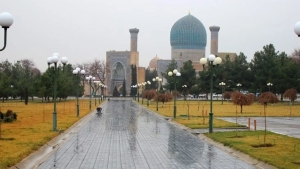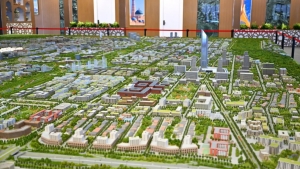In Tashkent, heating tariffs will be increased gradually

In Tashkent city, it is planned to gradually increase heat and hot water tariffs. This was reported by Zamin.uz.
In the coming years, the capital's residents will have to pay more for these services. On August 12, during a meeting of the city council of people's deputies, Sevara Pardayeva, the head of Veolia Energy Tashkent, provided detailed information on this matter.
Currently, the population pays only 18 percent of the basic tariff, while the remaining part is subsidized from the city budget. The government aims to completely eliminate subsidies by 2030.
For this reason, it is planned to raise tariffs to the full payment level within the next five years. In 2019, it was envisaged to increase tariffs by at least 30 percent annually under a cooperation program between the state and the private sector, but in practice, this process started in 2022.
In 2024, tariffs were increased by 30 percent for the first time, while in the previous year, there were two increases of 15 percent each. From October 1, 2025, tariffs may be raised again by 15 percent.
For example, the heat price for residents of multi-storey buildings may rise from the current 121,617 soums to 139,000 soums. Pardayeva criticized the tariff difference between legal entities and state enterprises.
Currently, state enterprises pay 801,000 soums per gigacalorie, while private legal entities pay only 241,000 soums. The main burden of this difference is borne by the population and the state budget.
Last year, it was proposed to increase tariffs for legal entities by 50 percent, but only 15 percent was approved. This situation caused the company a loss of 75 billion soums per year.
Therefore, this year it is proposed to increase tariffs for legal entities by 40 percent and for state enterprises by 19 percent. If approved, the tariff for legal entities will reach 342,300 soums, and for state organizations, it will reach 954,300 soums.
In conclusion, as a result of the gradual increase in heat and hot water tariffs in Tashkent, the payments of the population and businesses will significantly increase. Officials consider this process a necessary step towards adapting to market mechanisms and reducing the budget burden.
At the same time, these changes may impose an additional financial burden on the population. Source: Gazeta.uz







